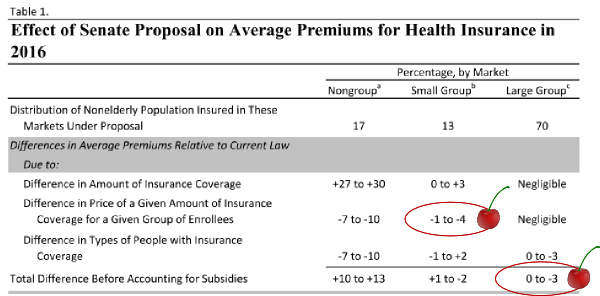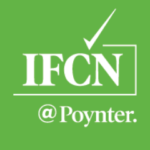Upon finding dubiously sourced information in a byline-less Des Moines Register editorial, Zebra Fact Check reached out to try to find the primary source backing the editorial’s claims. Quickly we realized that the editorial had very probably borrowed, without credit, material from the Whitehouse.gov website.
We started our outreach solely with the purpose of obtaining information about the primary source. After that, we concerned ourselves with helping the Register identify and correct a plagiarism problem. When the Register ceased communicating with us, we tried to interest two journalism watchdog organizations in pursuing the story (without success).
As a fact-checking site, we felt this type of story did not fit our format. Now that we are using the Zebra Fact Check site to prepare the launch of our own watchdog/fact-checking organization and the likely plagiarist has pocketed a Pulitzer Prize, we have opted to publish the story along with the emails connected to that story.
We reserve the right to publish all correspondence we received relating to this story except for the one denying permission to publish previous correspondence from the Register. We duly identified ourselves as journalists and received no advance statement that any communications were “off the record” or the like. We asked for explicit permission to publish all responses from the Register, which was explicitly refused. We refrain from publishing emails from the Register purely as a courtesy.
The messages are arranged in chronological order except for one. Each email has the date in the header to help make clear where the exception occurs.
Additional note: In correspondence I assert that the likely source of the plagiarized passage was from 2010. We now note that the 2010 version we linked is different from later versions. The version we quoted dates from at least as far back as 2011, however.
Email to Opinion Editor Randy Evans of the Des Moines Register, Feb. 17, 2014
Dear Randy Evans,
I inquired earlier today about a Sept. 14 editorial from the Register, speaking to you briefly by phone. I subsequently called back and left a voicemail message, but I’m writing now to ensure my message is received clearly.The Register‘s editorial contains information that is obviously paraphrased from the White House website (versions of the similarly worded sets of would-be myth-busting points appear on partisan sites as well).When I phoned the Register to inquire about the ultimate source of claims attributed to the CBO and/or other sources, I used the assumption that the Register would not use, nearly verbatim, material from the government website without alerting its readers. Of course we both know that government websites aren’t copyrighted. There’s no copyright problem with using their material. But your readers deserve to know where the material comes from, and they ought to be able to trust the paper not to plagiarize its editorials. The Register‘s web page provides no indication that the material came from any source other than the editorial staff.Compounding the problem, the information so far isn’t really checking out. Maybe it’s best to go directly to the CBO instead of relying on the White House interpretation.On the slim chance I’m wrong that the Register relied on a secondary source like the White House for the information, I’d still love to know what primary source was used.On a separate note, I’d like to thank you for dealing cordially with me over the phone. I appreciate you giving of your time to assist me.—
Sincerely,
Bryan W. WhiteeditorP.S.The Register, 2013:The independent Congressional Budget Office found the law will lower health insurance premiums for the same insurance plan by up to 4 percent for small businesses and 3 percent for large businesses. Estimates indicate businesses could save $2,000 per person in health costs.
Whitehouse.gov (~2010):
The independent Congressional Budget Office confirmed that the bill would lower health insurance premiums for the same insurance plan by up to 4 percent for small businesses and 3 percent for large businesses, and estimates indicate that reform could save businesses $2,000 per person in health costs.
I hope you understand I’m not trying to bust your chops over this. If I was in your shoes and there was a credible possibility of plagiarism I’d want to know about it. And then I’d want to do something to help keep it from happening again. You have my permission to share this email.
Email to Randy Evans, Feb. 18, 2014
Dear Mr. Evans,
Unfortunately, you received only part of the story from your staff at the Register. If you look carefully at the passage you’re offering as the source, the numbers don’t match. The editorial trumpets a decrease of as much as 4 percent for small group plans. The CBO passage you were offered as a source talks of a decrease in the small group market of as much as 1 percent.
The White House site cherry-picked the most favorable set of numbers, using the maximum percentage decrease in the small group market with the amount of insurance held constant along with the maximum increase in the large group market with other factors taken into account.
We would both like to think that this type of cherry-picking was [sic] done independently by both the White House and the Register’s editorial staff.
The Register, 2013:
The independent Congressional Budget Office found the law will lower health insurance premiums for the same insurance plan by up to 4 percent for small businesses and 3 percent for large businesses. Estimates indicate businesses could save $2,000 per person in health costs.
I marked up the CBO’s chart to graphically illustrate the deception (see .png attachment).
I’m sure your trust in your staff made it easy to overlook the discrepancy in the numbers. It’s just not plausible to come up with the 4 percent figure from the passage they’re claiming as the source (the easy transition from talking the size of group insurance to the size of businesses also supports the plagiarism angle).
You have my sympathy. I’m sure this is no fun.
Again, you have my permission to share this email.
Attachment image:
Email to Randy Evans, Feb. 18, 2014
Correction: We would both like to think that this type of cherry-picking was not done independently by both the White House and the Register’s editorial staff.
Email to Randy Evans, Feb. 19, 2014
Dear Randy Evans,
I have one further request of you, in three parts.
Please refer me to an authority at the Register who is duly authorized to speak to the press.
Please grant me your explicit permission to share and/or publish our entire email conversation.
Please forward our entire email conversation to the authority you’ve picked to fulfill Pt. 1.
Thank you very much, and have the best day possible.
Email to Randy Evans, Feb. 27, 2014
Dear Randy Evans,
Thank you for responding. I have already taken the liberty of contacting Mr. Green (I phoned the Register again and was referred to him). Thank you for forwarding our email conversation to him as per my request.
*REDACTEDREDACTEDREDACTEDREDACTEDREDACTEDREDACTEDREDACTEDREDACTED*
Now you’ve made me curious. Why would you withhold permission? Transparency is a wonderful thing.
You may share this email if you wish.
Cheers.
Email to President & Publisher Rick Green of Register Media, Feb. 24, 2014
Dear Mr. Rick Green,
I’m a fact-checking journalist, and I have run across what looks like a clear case of plagiarism on the Register’s editorial page.
I broached this issue with Randy Evans last week, and in my last email to him I requested that he refer me to someone authorized to speak for the paper and forward our email correspondence in full to that person. To my knowledge, Mr Evans has yet to act in response to my requests.
Naturally you’ll want to see the evidence of plagiarism. Without further ado:
White House website, 2010:
The independent Congressional Budget Office confirmed that the bill would lower health insurance premiums for the same insurance plan by up to 4 percent for small businesses and 3 percent for large businesses, and estimates indicate that reform could save businesses $2,000 per person in health costs.
(This phrasing is not found only at the White House website It also occurs elsewhere)
The Des Moines Register, 2013:
The independent Congressional Budget Office found the law will lower health insurance premiums for the same insurance plan by up to 4 percent for small businesses and 3 percent for large businesses. Estimates indicate businesses could save $2,000 per person in health costs.
As you can see, the phrasing is a very close match. I encourage you to examine the context of the editorial. You will confirm that the editorial references no secondary source that might have served as a middleman between the mentioned CBO report and the Register editorial.
It’s important for me to emphasize, and you can confirm this for yourself with a little effort, that the above summaries of the CBO’s report are not natural paraphrases of the information in the report. They are sophisticated (that is, misleading) paraphrases. The 3 percent and 4 percent figures are cherry-picked from different parts of the report. I do not believe the $2,000 figure appears in the CBO report. Nor do I believe it is implied therein.
http://www.cbo.gov/sites/default/files/cbofiles/ftpdocs/107xx/doc10781/11-30-premiums.pdf
These details make it overpoweringly unlikely that these parallel paragraphs were produced independently. As I wrote to Mr. Evans, we should hope that the Register would not independently spin information the same way we see it on the White House website. The alternative explanation, plagiarism, is actually less serious. One is willful deceit. The other can occur from carelessness.
If I worked at a newspaper and there was a credible charge of plagiarism, I’d want to know about it. And if I confirmed it was plagiarism, I’d want to do something about it to make sure it didn’t happen again. That’s why I originally wrote to Mr. Evans, and that’s why I’m writing to you.
After you decide how the Register will treat this problem, I would like a statement from the Register for the record.
Thank you very much for taking the time to consider this issue.
Email to Rick Green, March 6, 2014:
Dear Mr. Rick Green,
Over a week has passed since you assured me an internal review would take place.
As of now, I detect no change at all in the online version of the editorial in question. Nor have you acknowledged my request for an official statement of how the Record [sic] will treat this problem.
Has anything at all happened on this front?
Email to Rick Green, April 8, 2014:
Dear Mr. Rick Green,
Over a month has passed since you assured me an internal review would take place regarding the apparent plagiarism and inaccuracy of a Sept 2013 editorial in the Register.
I continue to detect no change at all in the online version of the editorial in question. Nor have I received any acknowledgement of my request for an official statement.
Please let me know whether or not any internal investigation has taken place. If an investigation has taken place, please communicate its results to me for the record.
Email to Emma S. Lang, Gannett Company Inc., May 19, 2014
To whom it may concern,
As promised on the phone, an example of plagiarism from an Iowa Register editorial from Sept. 13, 2013:
http://www.desmoinesregister.com/article/20130915/OPINION03/309150038/The-Register-s-Editorial-Dispelling-myths-new-health-law
The problem is actually twofold. The material, aside from minor cosmetic changes, occurred long before the Register published it at the White House website (as well as other places on the Web). The material also contains information misleadingly cherry-picked from a CBO report.
As I wrote to representative of the Register, we should all hope Register editors did not perform the same spin on the facts found on the White House website .
This is the plagiarized passage:
The independent Congressional Budget Office found the law will lower health insurance premiums for the same insurance plan by up to 4 percent for small businesses and 3 percent for large businesses. Estimates indicate businesses could save $2,000 per person in health costs.
Moreover, I have found zero evidence of the “2,000 per person” figure in the CBO report. That figure does appear in the White House version. Given the spin on the percentage figures and the presence of the apparently alien $2,000 figure, it is highly unlikely the Register used the CBO report as its source for the passage.
I’ll be delighted to send additional material explaining both the deception and the chronological priority of the White House version on request. I’ll likewise disclose my disappointing experience in sharing this information with representatives of the Iowa Register if representatives of the paper’s parent company would find that useful.
Thank you very much for your attention to this matter.
Email to Emma S. Lang, May 21, 2014:
I’d greatly appreciate confirmation that my message reached its intended destination. Something like “Got it” will be more than adequate.
Thanks!
Email to Emma S. Lang, May 21, 2014
Dear Emma S. Lang,
Thank you.Are you authorized to identify the person(s) to whom my email was forwarded? I’m determined to do all I can to obtain an official (quotable, public) response to this issue.Have an excellent day.
Email to Andie Dominick, April 17, 2018:
Dear Andie Dominick,
Back in 2014, I detected a likely case of plagiarism from the Des Moines Register from September 2013. I was told by phone that you authored the byline-less editorial in question.
I sent messages to the Register about the problem. I was assured by management that an internal investigation would tak [sic] place but never heard back despite sending more than one request for an official statement on the outcome.
In light of your recent Pulitzer Prize (congratulations), I’m preparing to publish the work I did on that case.
Have you any comment?
Correction April 18, 2018: We incorrectly put the year 2018 as the date for two messages to Randy Evans. We changed both to the correct year, 2014.




